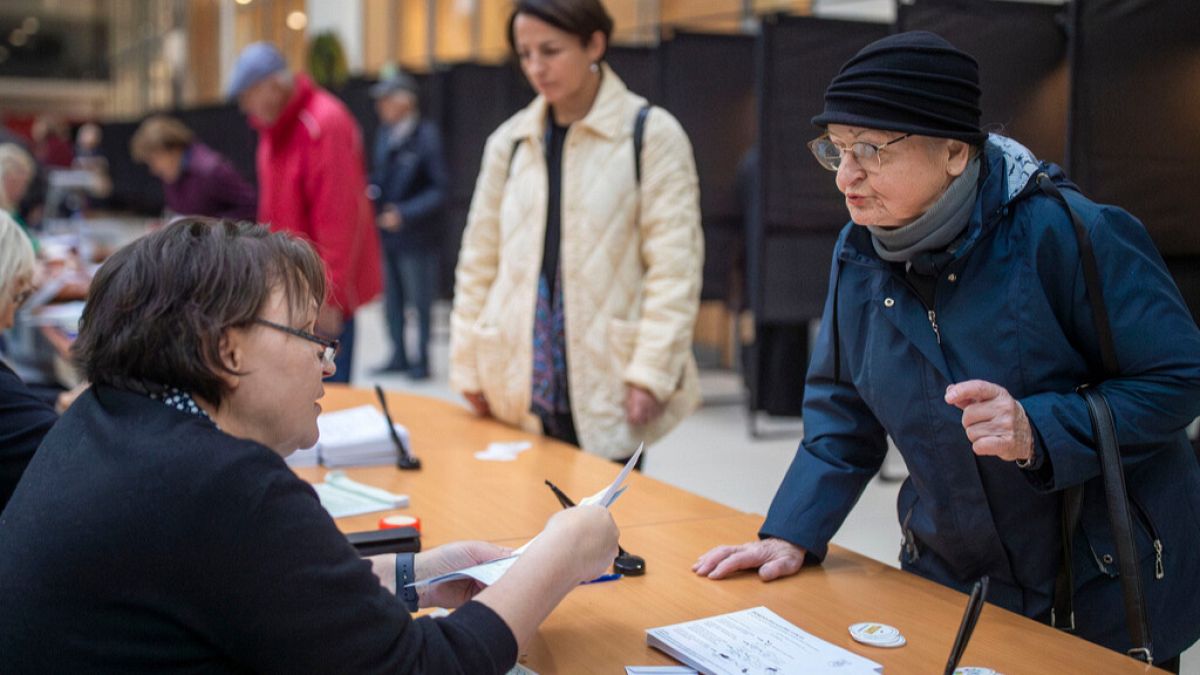Migration challenges and economic gains shape Lithuanian voters’ concerns.
Lithuania’s first round of parliamentary elections is underway, with polling stations opening at 6 a.m. on Sunday.
Roughly 2.4 million eligible voters will head to the ballot box over the day and elect 141 members from a wider pool of 2,400 political candidates for a four-year term in two rounds for Seimas, also known as parliament.
Polls close at 5 p.m. with the results expected to be announced on Monday.
The runoff vote is scheduled for 27 October, when the majority of single-member constituencies will vote to choose between the two leading candidates.
Results from the political contest could result in the opposition Social Democrats and smaller centre-left parties replacing the centre-right governing coalition.
Strict COVID-19 measures and an influx of migrants have cast shadows over conservative Prime Minister Ingrida Šimonytė’s government, which took office in 2020, and the country’s economic successes.
Lithuania has seen annual double-digit personal income growth and has one of the lowest inflation rates in the 27-nation EU bloc — but many voters don’t seem to be impressed.
“There’s a lot of disappointment and discontent among voters,” said Rima Urbonaitė, a political analyst at Vilnius’ Mykolas Romeris University.
“It is related to numerous crises and shocks and cannot be compensated by economic factors like positive change in purchasing power.”
Šimonytė skewered on COVID-19, migration policies
Šimonytė has faced criticism for strict measures during the pandemic, with many complaining that her government didn’t do enough to help companies during lockdown. Others say thousands of people didn’t have access to health care services.
Šimonytė also has been lambasted for her handling of migrants arriving via Belarus.
The Social Democratic Party, led by Vilija Blinkevičiūtė, is expected to lead at the ballot box, trailed by Šimonytė’s Homeland Union.
The newly registered Nemuno Aušra party, founded by right-wing politician Remigijus Žemaitaitis who was impeached earlier this year for making anti-Semitic statements, is also expected to drum up support.
If no party obtains more than 20% of the vote, governing alliances will need to be formed.
Analysts say a shift to the left wouldn’t bring significant changes to the foreign policy of Lithuania, which also borders Russia’s Kaliningrad exclave to the west.
However, the vote comes at a time when Russia’s war in Ukraine is fuelling greater fears about Moscow’s intentions, particularly in the strategically important Baltic region.



